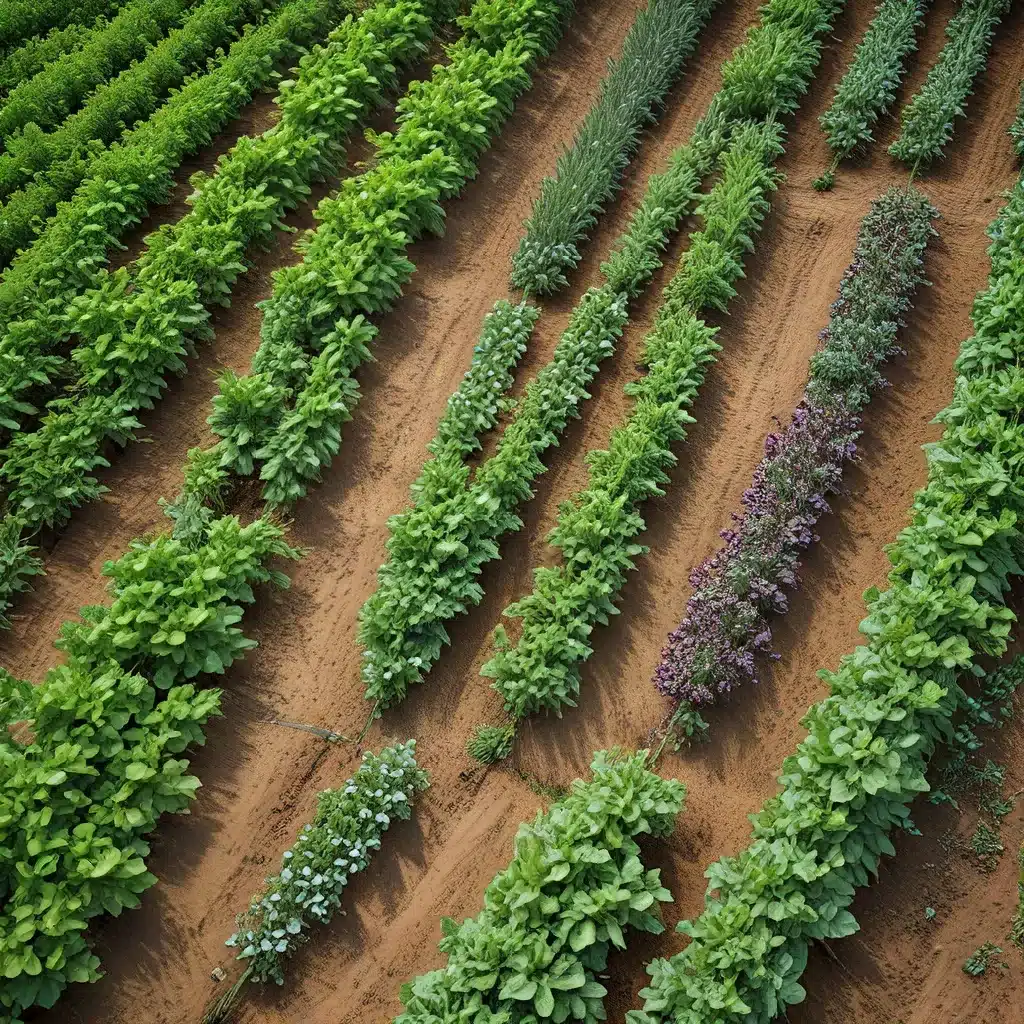
The Rise of Sensor-Driven Precision Farming
As the agricultural industry grapples with the ever-evolving challenges of a changing climate and diminishing labor resources, the need for innovative solutions to enhance crop management has never been more pressing. Sensor networks and Internet of Things (IoT) technologies have emerged as game-changers, empowering farmers to make data-driven decisions that optimize vine health, crop quality, and yield.
Kubota, in collaboration with the French startup Chouette, has pioneered a transformative precision farming solution for vineyards, leveraging the power of embedded sensors and AI-driven analysis. By integrating GPS, digital mapping, robotics, and autonomous equipment, this innovative approach enables vine growers to elevate their management strategies, leading to improved disease control, fertilizer optimization, and water usage reduction.
Enhancing Vine Health and Grape Quality
The Kubota-Chouette solution utilizes a network of sensors mounted on tractors to gather real-time data on various aspects of the vineyard, including soil moisture, temperature, nutrient levels, and disease prevalence. This comprehensive data set is then analyzed using advanced AI and machine learning algorithms, empowering farmers to make informed decisions and implement targeted interventions.
One of the key features of this technology is its ability to create detailed disease maps. By detecting early-stage diseases like mildew or oidium through sensor-based monitoring, farmers can apply targeted treatments to specific vine trees, optimizing the use of crop care products and minimizing the environmental impact. In trials conducted by Kubota and Chouette, this approach enabled farmers to reduce their chemical usage by up to 40% while maintaining superior grape quality and yield.
Optimizing Resource Utilization and Boosting Productivity
Beyond disease control, the sensor network technology also provides valuable insights into other aspects of vine management, such as canopy height, vigor, and fertilizer requirements. By analyzing this data, farmers can optimize their use of liquid fertilizers and water resources, addressing labor challenges and reducing overall production costs.
The integration of GPS and digital mapping further enhances the precision of these interventions, allowing farmers to tailor their actions to the specific needs of individual vine trees. This level of granular control not only improves crop quality and yield but also contributes to a more sustainable agricultural ecosystem, promoting biodiversity and environmental stewardship.
Embracing the Future of Precision Horticulture
The success of the Kubota-Chouette solution is evident in the experiences of wine growers like Anthony Appolot from Château de Saint-Pey in Bordeaux. By leveraging the real-time data and prescriptive insights provided by the sensor network, Appolot was able to reduce his chemical usage by 20-40% while ensuring the quality and dosage of his vineyard treatments.
As the agricultural industry continues to grapple with the challenges of a rapidly changing landscape, the integration of sensor networks and IoT technologies in precision farming stands as a beacon of hope. By empowering farmers to make data-driven decisions, optimize resource utilization, and enhance crop quality, these innovative solutions are paving the way for a more sustainable and prosperous future in horticulture.
Unlocking the Potential of Soil Health Monitoring
While the Kubota-Chouette solution has made significant strides in vine management, the potential of sensor networks extends far beyond the vineyard. In the realm of coffee cultivation, researchers have explored the integration of IoT-based soil health monitoring to transform infertile land into thriving, productive farms.
A study published in Scientific Reports demonstrates the power of Recurrent Neural Networks (RNNs) and Gated Recurrent Units (GRUs) in analyzing real-time sensor data to predict soil conditions and potential crop threats. By continuously monitoring parameters like soil moisture, temperature, pH, nutrient levels, and CO2 concentration, this AI-driven system can provide farmers with timely recommendations for irrigation, fertilization, and crop management.
Embracing the Sensor-Driven Future of Agriculture
The integration of sensor networks and IoT technologies in precision farming is a transformative stride that empowers farmers to make data-driven decisions, optimize resource utilization, and enhance crop quality and yield. From vine management in vineyards to soil health monitoring in coffee plantations, these innovative solutions are paving the way for a more sustainable and prosperous future in horticulture.
By embracing the power of sensor-driven precision farming, growers can not only improve their bottom line but also contribute to a more environmentally-conscious and resource-efficient agricultural ecosystem. As the industry continues to evolve, the adoption of these cutting-edge technologies will be a crucial factor in shaping the future of precision horticulture.
Sensor-Networks.org is at the forefront of exploring the latest advancements in sensor network technologies and their applications in various industries, including agriculture. Stay informed and connect with the sensor network community to unlock the full potential of precision farming and shape the future of sustainable horticulture.